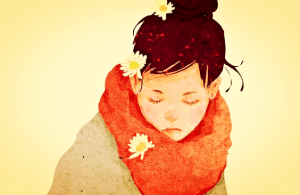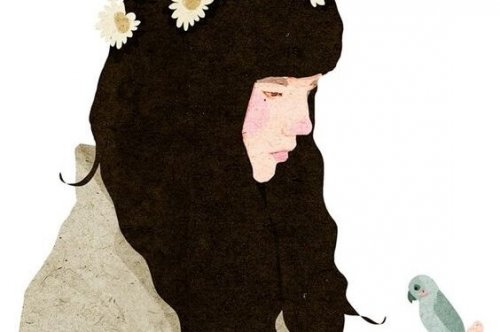Solitude Protects Us from Potential Harm


Written and verified by the psychologist Gema Sánchez Cuevas
Freely chosen solitude protects us and is not only a soothing balm but an effective therapy to reconnect with ourselves. Sometimes it is also a way of putting distance between us and things we should avoid. It protects us from what might upset us or disturb our inner peace.
We are talking about what psychology often defines as “functional solitude,” a concept that gives shape to something that is more or less familiar: the need to distance ourselves from damaging or toxic surroundings so we can find ourselves and regain our psychological well-being.
“There is no worse loneliness than not being right with oneself.”
Here we are not talking about involuntary solitude. That would be, for example, isolation caused by deficient social relationships, or sadness related to not having meaningful company. In this case, there is an essential therapeutic component and that is the power to repair basic factors like self-esteem and personal priorities. It means getting back our own intimate and private space that was taken from us.
As Pearl Buck, writer and winner of the Nobel Prize in Literature once said, inside each and every one of us there are beautiful springs that need to renew themselves once in a while so we continue to feel alive. As strange as it may seem, something like this can only happen during times of elected, dynamic, and pleasant solitude.

Loneliness while with company, a dangerous abyss
Most of us are scared by solitude. In fact, it’s enough to imagine ourselves walking alone in a deserted mall on a Saturday afternoon for our brain to start ringing alarm bells. We feel fear and distress. This is due to a basic mechanism, an instinct that reminds us that we can’t survive alone. Human beings are social by nature and living in groups is how we’ve survived as a species.
That being said, in our day to day lives, we have found something even more terrifying than an empty mall. Various studies show that almost 60% of married people feel alone. 70% of teens, in spite of having many friends, feel alone and misunderstood. This reminds us that loneliness is not about the number of people in our lives, but about the emotional quality of our connections.
On the other hand, something that frequently happens is that we validate and perpetuate things that generate unhappiness. We feel alone, misunderstood, and burned-out at work, but we stay because we have to do something to earn money. We go out with the same people as always because we’ve been friends with them all our lives. How could I leave them now? There are even people who maintain a romantic relationship in spite of feeling alone because they are more afraid of the emptiness of not having anyone by their side.

All of these examples give us a picture of dysfunctional solitude. Dysfunctional solitude makes us put up defense mechanisms to avoid seeing reality. We tell ourselves that everything is fine, that we are loved, that others value everything we do. Thinking this way is like a drowning person who sticks their head above the surface to ask for more water.
Unhappiness isn’t cured with more suffering. No one deserves to feel alone when they are with someone else.
Solitude as a reencounter
Sometimes spending time in an oppressive, uncomfortable, and selfish environment can make a person focus on satisfying other’s needs, hoping that sooner or later someone will satisfy hers. However, the rule of three doesn’t always obey.
“I don’t fear solitude, some of us are prone to enjoy it”
-Charlotte Brontë-
In this case, there’s no other choice but to get a grip on reality and try to find a solution. Elected solitude, distance, and a period of time dedicated to oneself is always healthy, necessary, and cathartic. We aren’t talking about a period of isolation or of escaping. It’s really very simple: the key is to leave behind what isn’t good for us.

Dedicating time to ourselves is a recipe that never fails. Recovering our own space is remembering who we were and thinking about who we want to be from now on.This might take weeks or months. We all have our own rhythm and timing that we have to accept and respect.
Freely chosen solitude at certain times in our life doesn’t just heal and put together our broken pieces. It is a way of learning to build our own proper personal filters. These filters help sift through the mess and only let in things and people that make us feel good, that adjust to our emotional frequencies and the special places in our heart.
This text is provided for informational purposes only and does not replace consultation with a professional. If in doubt, consult your specialist.








